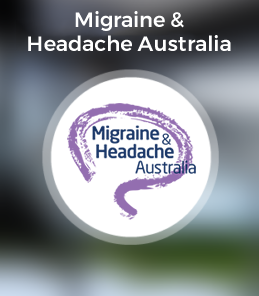DESCRIPTION
Alzheimer’s Disease is a form of dementia — a neurodegenerative disease that damages the brain’s intellectual functions (memory, orientation, calculation, etc.), but usually preserves its motor functions.
Although usually a disease of later life (generally after the age of 60), it may rarely affect persons as young as age 30. There appear also to be genetic factors that increase the risk of Alzheimer’s Disease. Other people possibly at risk of developing Alzheimer’s Disease are those with a history of head injury, of the female sex and those of a lower educational level. Although these risk factors often make headlines in the popular press, the possible additional risk is not high, and the evidence not very strong.
In the earliest stages of Alzheimer’s Disease short-term memory is affected, and the patient finds it hard to learn and retain new information. Eventually, older or distant memory is lost gradually, and it becomes difficult to recover memories of events and people from earlier life. Next, other symptoms such as difficulty in putting thoughts into words, difficulty in carrying out simple directed acts and difficulty in recognizing well-known faces or objects may develop.
In practical terms, a person with early Alzheimer’s Disease may not be able to plan meals, manage money, remember to keep doors locked against intruders or take medicine on schedule. The person also may lose his or her sense of direction and get lost while driving or walking, even in a familiar neighbourhood. Personality changes, anxiety, or depression also may occur, causing serious problems in relationships.
As Alzheimer’s disease progresses to its middle and late stages, there may be delusions and hallucinations. The patient may become aggressive or may wander away from home if left alone.
TREATMENT
There is no cure for Alzheimer’s Disease and no way to slow its progression. For some people in the early or middle stages of the disease, medication such as tacrine may alleviate some cognitive symptoms. Aricept (donepezil) and Exelon (rivastigmine) are reversible acetylcholinesterase inhibitors that are indicated for the treatment of mild to moderate dementia of the Alzheimer’s type. These drugs (called cholinesterase inhibitors) work by increasing the brain’s levels of the neurotransmitter acetylcholine, helping to restore communication between brain cells. Some medications may help control behavioural symptoms such as sleeplessness, agitation, wandering, anxiety, and depression. These treatments are aimed at making the patient more comfortable.
As much as possible the patient should follow a safe, regular exercise routine, maintain normal social contacts with family and friends and continue intellectual activities. Safety concerns, especially driving safety, should be discussed with the doctor.
Although no medication is available to cure Alzheimer’s Disease, the cholinesterase inhibitors may improve performance of daily activities, or lessen behavioural problems.
Medications for the treatment of Alzheimer’s Disease currently being tested include oestrogens, nonsteroidal anti-inflammatory agents, vitamin E, selegiline (Carbex, Eldepryl) and the botanical product gingko biloba. A vaccine is being studied in mice.
PROGNOSIS
Alzheimer’s Disease is progressive. The course of the disease varies in individual cases. Some people have the disease only for the last five years of life, while others may have it for as many as twenty years. The most common cause of death in AD patients is infection, for example pneumonia.
FURTHER INFORMATION AND SUPPORT
In 2019 A/Professor Peter Noakes was the recipient of Brain Foundation grant funding into Alzheimer’s – click for more.
In 2018 A/Professor Amy Brodtmann was the recipient of Brain Foundation grant funding into Alzheimer’s – click for more.
Click here for the latest Australian research papers on Alzheimer’s Disease.
National Institutes of Health – USA
www.nih.gov
Dementia Australia
Free Helpline 1800 100 500
www.dementia.org.au
Alzheimer’s Society – UK
www.alzheimers.org.uk
healthdirect: trusted health information and advice online and over the phone (1800 022 222), available 24 hours a day, 7 days a week. Funded by the governments of Australia.
www.healthdirect.gov.au
Reviewed by Associate Professor John Watson, Director, Neuropsychology Unit, Royal Prince Alfred Hospital, Camperdown.
DISCLAIMER: The information provided is designed to support, not replace, the relationship that exists between a patient / site visitor and his / her existing health care professionals.




 The Brain Foundation is the largest, independent funder of brain and spinal injury research in Australia. We believe research is the pathway to recovery.
The Brain Foundation is the largest, independent funder of brain and spinal injury research in Australia. We believe research is the pathway to recovery.